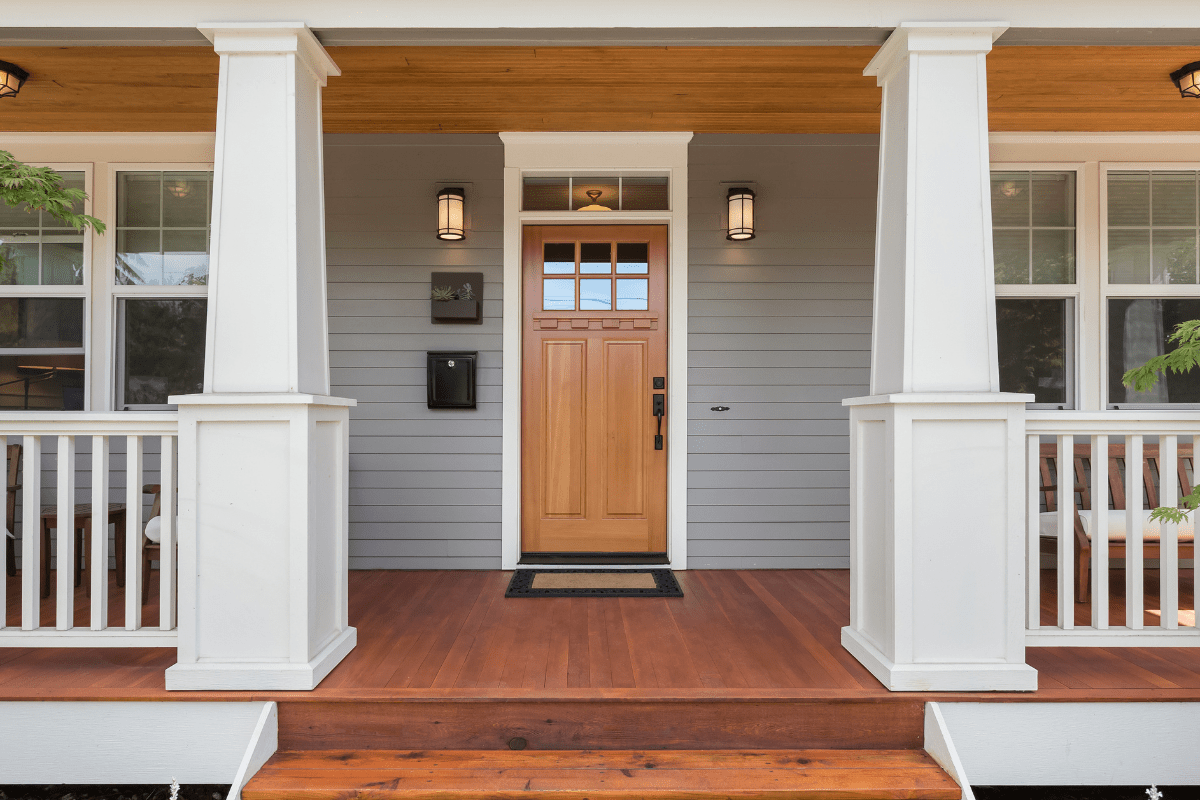Living in Tennessee means dealing with weather that can't make up its mind, clay soil that acts like a moody teenager, and humidity levels that make you feel like you're swimming through the air. But here's the good news: smart maintenance strategies can actually save you money while keeping your home in top shape.
Understanding Tennessee's weather challenges
Tennessee's weather patterns create unique challenges that vary dramatically across our three distinct regions. Each area demands its own maintenance approach, and understanding these differences can save you thousands in preventive repairs.
Regional variations that matter
East Tennessee's mountain region gets the prize for most dramatic weather swings. With up to 36 inches of annual snowfall and temperatures that drop 3°F for every 1,000 feet you climb, mountain homeowners face winterization challenges their lowland neighbors can only imagine. I've seen pipes freeze solid at elevations where valley folks are still wearing light jackets.
Middle Tennessee wins the "most unpredictable" award hands down. We average 17 tornadoes annually, and our temperature swings can go from shorts weather to snow boots within 24 hours. Your home's systems take a beating from these constant changes, especially your poor HVAC unit that never knows whether it should be heating or cooling.
West Tennessee's delta region battles a different beast entirely: relentless humidity. Living near the Mississippi River means moisture levels that would make a fish happy but turn your crawl space into a science experiment. The aggressive moisture control needed here makes dehumidifiers as essential as sweet tea at a summer barbecue.
The humidity factor nobody talks about
Here's a fun fact that'll make you appreciate your air conditioner even more: Tennessee's average daily humidity hovers around 70-72%, with morning peaks hitting 84-87% in major cities. That's not just uncomfortable… it's actively trying to destroy your home from the inside out.
The real kicker? Over 50% of Tennessee tornadoes strike at night, giving us the highest nighttime percentage nationally. Nothing quite wakes you up like a tornado siren at 2 AM. The April 2025 McNairy County tornado proved this point dramatically, causing $30.3 million in damage with its 160 mph winds while most folks were sleeping.
Major home systems needing Tennessee-specific attention
Your home's major systems face unique challenges in Tennessee's climate. Understanding these challenges helps you maintain them properly and avoid those stomach-dropping repair bills.
HVAC systems: Your humidity-fighting heroes
Tennessee's HVAC systems do double duty, battling both temperature and moisture. In cities like Chattanooga, where humidity averages 76%, your air conditioner works harder than a one-legged cat in a sandbox.
The secret to success lies in choosing the right system. Two-stage or variable-speed compressors handle our moisture levels far better than single-stage units. Tennessee's building code recommends 15-18 SEER units, but honestly, going higher pays off in the long run. I learned this the hard way when my undersized unit couldn't keep up with August humidity, turning my living room into a tropical rainforest.
Regular maintenance keeps these workhorses running efficiently:
- Change filters monthly during peak seasons
- Schedule bi-annual professional service
- Clean condensate drain lines quarterly
- Monitor humidity levels with a hygrometer
- Check refrigerant levels annually
Professional maintenance runs $75-120 per visit, but considering the average repair costs $944 and full replacement can hit $13,000-17,000, it's money well spent. Find a certified technician through the TVA Quality Contractor Network to ensure they understand Tennessee's specific challenges.
Foundation management in clay soil
If Tennessee had a state villain, it would be our clay soil. This stuff expands up to 25 times more than sandy soil when wet, then shrinks dramatically when dry. The result? One in four Tennessee homes deals with foundation issues related to our moody dirt.
Middle Tennessee's red clay presents particular challenges. As one local expert from Frontier Foundation & Crawl Space Repair puts it: "Middle Tennessee's rolling hills and scenic beauty are captivating, but beneath the charm lies a unique challenge for builders: the infamous red clay dirt."
Watch for these warning signs like a hawk:
- Cracks wider than 1/4 inch
- Doors that suddenly won't close
- Windows that stick or won't latch
- Gaps between soil and foundation
- Sloping or uneven floors
- Diagonal cracks from window corners
Foundation repairs average $4,436 nationally, but severe cases can exceed $10,000. The good news? Most problems are preventable with proper moisture management. Installing French drains, maintaining consistent soil moisture, and using crack monitoring gauges ($20-40) can save you from joining the expensive repair club.
Roofing resilience against storms
Tennessee roofs face a triple threat: wind, hail, and humidity. With 34% of insurance claims involving wind or hail damage, your roof needs more attention than a toddler at a birthday party.
Our humid climate creates another headache… moss and algae growth. These unwelcome guests particularly love north-facing slopes where shade keeps things damp. While they might give your home that "English cottage" look, they're actually eating away at your shingles like tiny, green termites.
Professional roof cleaning every 2-3 years costs $250-600, far less than the $15,000-25,000+ for full replacement. Between cleanings, copper-infused shingles or zinc strips provide natural resistance to organic growth. For storm-prone areas, impact-resistant shingles might cost more upfront but can reduce insurance premiums and prevent damage from our frequent hail events.
Year-round maintenance schedule for Tennessee homes
Success in home maintenance comes from timing tasks with Tennessee's seasonal patterns. Here's your month-by-month game plan for staying ahead of problems.
Spring maintenance (March through May)
March kicks off our maintenance year as nature wakes up and so do the termites. Tennessee's termite season begins early, making March inspections crucial. With last frost dates varying from March 4 in Memphis to May 10 in mountain areas, this month offers the perfect window for foundation inspections before spring rains test your drainage systems.
April brings the pre-summer HVAC rush. Schedule your AC service now before every HVAC company in Tennessee gets booked solid. This is also prime time for sealing exterior gaps before storm season arrives. Our 47-53 inches of annual rainfall will find every tiny opening, so grab that caulk gun and get busy.
May tasks focus on storm preparation:
- Trim trees away from structures
- Clean and inspect gutters
- Complete exterior painting projects
- Test sump pumps
- Update emergency supply kits
- Check weather alert systems
Summer maintenance (June through August)
Summer in Tennessee means managing humidity like it's your job. Indoor levels should stay between 30-50% despite outdoor humidity reaching sauna levels. Running dehumidifiers becomes essential, especially in basements and crawl spaces where mold remediation can cost $1,000 or more.
Your HVAC system works overtime during these months, making monthly filter changes non-negotiable. When your attic hits 130°F (and it will), that heat transfers throughout your home. Check ductwork sealing and add insulation where needed. I once discovered my unsealed ducts were cooling my attic more than my living room… expensive lesson learned.
Monitor for these summer issues:
- AC units freezing up
- Unusual humidity levels indoors
- Hot or cold spots
- Increased energy bills
- Pest activity increases
- Storm damage after events
Fall maintenance (September through November)
September offers the sweet spot for major maintenance projects. The weather's comfortable, and contractors aren't yet swamped with emergency calls. Schedule heating system service now to avoid the winter rush and premium pricing.
October's pre-frost period demands serious winterization efforts. Average first frost hits October 25 in Nashville, but mountain areas see it earlier. Pipe insulation needs vary dramatically… East Tennessee's potential for -20°F requires heavy-duty protection, while Middle Tennessee's typical 20-30°F lows need moderate coverage.
November brings final preparations before winter. Clean gutters one last time after leaf fall, and seal any gaps that could let cold air infiltrate. Poor weatherization can increase heating costs by 20-40%, making this effort pay for itself quickly.
Winter maintenance (December through February)
Tennessee winters might seem mild compared to northern states, but our ice storms pack a devastating punch. The 1994 ice storm left 770,000 without power and caused $500 million in damage, teaching us that winter preparedness isn't optional.
Keep your heating system happy with monthly filter changes and have backup heating plans ready. East Tennessee homeowners should monitor for ice dams, while everyone needs to watch for frozen pipe warnings after cold snaps. Nashville's emergency management website offers excellent resources for winter storm preparation.
Cost-saving strategies every Tennessee homeowner needs
Smart maintenance doesn't have to drain your bank account. In fact, Tennessee homeowners can access significant savings through strategic planning and available programs.
The DIY sweet spot
Knowing what to tackle yourself versus calling professionals can save you hundreds annually. Safe DIY projects that offer great returns include basic caulking ($50-100 in materials versus $300-500 for professional work), HVAC filter replacement ($15 monthly versus $75 for a service call), and gutter cleaning on single-story homes.
However, Tennessee law requires professional licensing for electrical work and any project exceeding $25,000. Don't mess with electricity or structural work… the savings aren't worth the risk or potential legal issues.
Maximizing Tennessee rebate programs
Here's where it gets exciting. TVA's EnergyRight program offers rebates that can total over $5,000 for qualifying improvements. Current offerings include up to $1,500 for HVAC systems, $300 for duct sealing, and $15 per Energy Star window. Chattanooga area residents can access additional EPB rebates that stack with TVA incentives.
Even better news arrives in late 2025 when Tennessee's $83.7 million allocation from the Inflation Reduction Act launches. This program will provide $2,000-8,000 per household for energy efficiency improvements. Smart homeowners are planning major upgrades to coincide with these programs.
Understanding your ROI
Research shows preventive maintenance delivers an astounding 545% return on investment. For every dollar spent on prevention, you save five dollars in repairs. Let that sink in for a moment… where else can you get that kind of return?
Tennessee-specific project ROI data:
- Garage door replacement: 82.9% return
- Minor kitchen remodel: 82% return
- Interior painting (DIY): Over 100% return
- Regular HVAC maintenance: 545% return
- Foundation moisture management: Prevents $4,000+ repairs
Emergency preparedness for Tennessee weather
With 69 federally declared disasters since 1953, Tennessee homeowners can't afford to be unprepared. Our state averages 9.58 disasters per million residents, making emergency readiness as important as regular maintenance.
Since over half our tornadoes strike at night, weather alert systems become literal lifesavers. Modern smartphone apps provide location-specific warnings, but don't rely solely on technology. Battery-powered weather radios still offer the most reliable alerting, especially during power outages.
Essential emergency preparations include:
- 72-hour supply kit minimum
- Predetermined safe room identified
- Important documents in waterproof storage
- Backup power options available
- Emergency contact list updated
- Insurance documentation current
- First aid supplies stocked
- Water shut-off locations marked
The Tennessee Emergency Management Agency provides comprehensive guides for disaster preparation. Their resources cover everything from tornado safety to winter storm response, tailored specifically for Tennessee's unique risks.
Making it all work together
Success in Tennessee home maintenance comes from understanding our unique challenges and planning accordingly. Our below-average maintenance costs (ranking 6th lowest nationally at $15,200-15,500 annually) help offset weather-related issues, but only if you stay proactive.
Start with a professional home energy assessment through the TVA Quality Contractor Network. This establishes your baseline and identifies the most cost-effective improvements. From there, implement a seasonal maintenance schedule tailored to your region's specific challenges while keeping detailed records for insurance and ROI tracking.
Tennessee's combination of exceptional preventive maintenance returns, substantial rebate opportunities, and below-average maintenance costs creates an ideal environment for smart homeowners. By understanding and working with our state's unique conditions rather than fighting against them, you'll protect your investment while ensuring your family's comfort and safety throughout the year.
Remember, every Tennessee home faces these challenges, but not every homeowner handles them well. The difference between a money pit and a well-maintained home often comes down to timing, knowledge, and taking action before small problems become expensive emergencies. Your home will thank you, your wallet will thank you, and you'll sleep better knowing you're prepared for whatever weather Tennessee throws your way.





